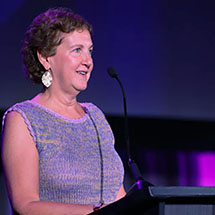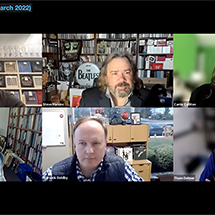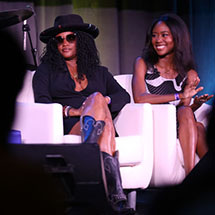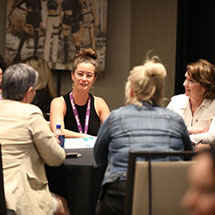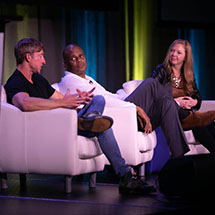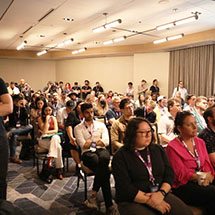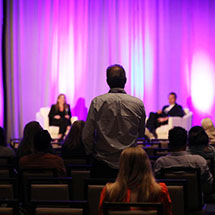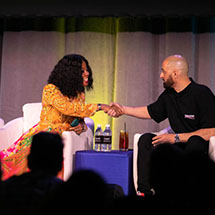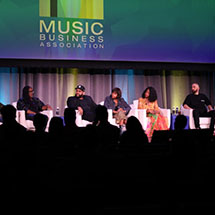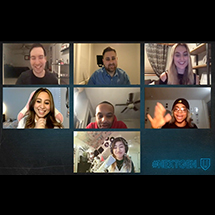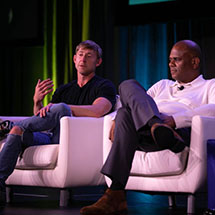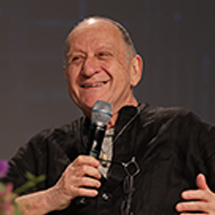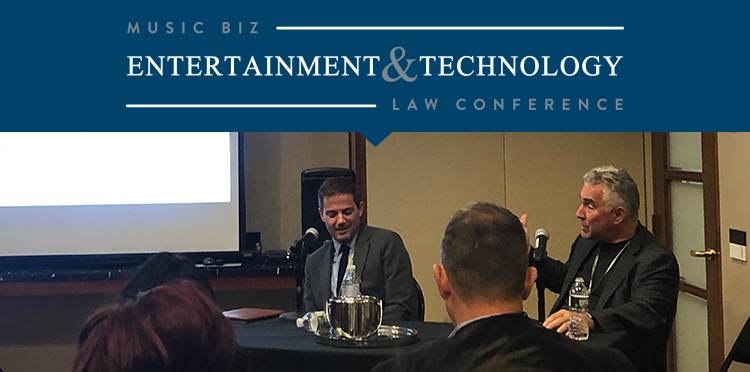
[MUSIC BIZ LAW CONFERENCE RECAP] Panel 2 — (Pod)Cast Away

Music Biz continues its recap of last week’s Entertainment & Technology Law Conference with a look at the day’s second panel, “(Pod)Cast Away.” Thank you to event sponsor BMI for helping to assemble this panel!
With ad revenues forecasted to hit $700 million in 2019, it’s clear to see why, as moderator Evan Parness of BMI put it, podcasting has become the “topic du jour” in the music business. What started as a platform that gave the everyman with a microphone the ability to broadcast their voice is now causing seismic shifts in the music landscape, as is evident with recent acquisitions and platform changes to incorporate podcasts on platforms like Spotify and Pandora. The day’s second panel discussed the questions that still remain as podcasts continue their transition from the basement to the boardroom, including how record labels can leverage the platform and how can creatives ensure that they are fairly paid when their music is featured on a podcast.
The discussion began with talk of what constitutes a podcast and differentiates it from other mediums. While it seems like a common sense answer, this analysis is important because it calls into question how content can be licensed for the platform, especially with a large community of independent creators who typically would not be able to license artists’ music for their shows on their own. Right now, shows that are supported by larger players and can afford license are a small part of the market — Atlantic Records’ Tom Mullen cited a stat that if a podcast has 848 downloads a month, that show is performing better than 80% of the current market. So how does one go about licensing music for a show they are working on? Gabriel Fleet of Greenberg Traurig responded to an audience question about such a license in saying that this issue is very similar to a synch in that it still revolves around “derivative work.”
Parness pointed out that BMI does not offer a specific “podcast license” for content they handle, which led a discussion on the current “Wild West” environment where many podcasters are not obtaining proper licenses for derivative works. Fleet attributes this to a lack of education for smaller players on licensing, and stated that larger companies are building expectations into new contracts with podcasters that they will obtain proper sign-off for content the way someone working on a film or TV show would. Stitcher, for example, asks its creators to sign a disclaimer that all licensed content in a podcast is signed off on prior to it appearing on their platform.
More gray areas emerge however when talking about deep-dive podcasts that cover specific artists or albums, playing clips of their work interlaced with commentary on the topic. Many creators claim Fair Use when interlacing their content with music which should be licensed, but as the market continues to grow, Fleet points out that Fair Use is less lenient unless the show is true journalism or an analytical work. The group also stressed that the common perception of “10-Second Rules” or “30-Second Rules” is inaccurate — there is no set time limit for content to be used under Fair Use.
So how can artists receive proper compensation when their work is used in podcasts? Fleet discussed how podcasters doing their due diligence are currently clearing songs in ways similar to a synch, but that the process still proves to be cumbersome. Perpetual licenses, for example, are great for TV synch applications, but may not make sense for podcasts with limited budgets. To address some of these problems, Richard Conlon of SoundExchange discussed the company’s partnership with SourceAudio to create a licensing marketplace that allows for podcasters to license music at reasonable rates based on number of downloads, show revenue, audience size, and other essential listener data. A beta is expected to launch next year. Another good fallback, the panel agreed, was the use of production music, which supports the independent music scene for musicians looking for odd jobs and can easily create transition or theme music specific for that podcast.
Artists, and their labels, can also get in on the action by creating their own podcasts. For example, Mullen has established Atlantic’s podcasts into a prime marketing opportunity, sitting down with the label’s artists to discuss and play clips from their latest releases as part of their promotional campaigns. This process creates promotion for the artist, content for Mullen, and captivates the attention of the audience longer than the amount of time someone would look at an online ad. Mullen offered, “If I can get someone to listen to it and they’re more invested in Cardi B or Missy Elliot, then we need to be a part of it.”
Written Materials:
- https://www.broadcastlawblog.com/2011/07/articles/beware-music-use-in-podcasts-downloads-and-on-demand-streams-are-not-covered-by-your-soundexchange-royalties/
- https://www.hypebot.com/hypebot/2019/08/soundexchange-to-power-global-podcast-music-licensing-.html
- https://medium.com/podcast-101/music-for-podcasts-myths-licences-and-what-you-need-to-know-dd5ed4506d00
- https://powerpresspodcast.com/2016/03/04/copyright-myths-that-will-sink-your-podcast/
Music Biz’s Entertainment & Technology Law Conference brought together top players from the tech and startup, music business, and entertainment law communities at the NYC offices of Greenberg Traurig to hash out solutions to the high-profile issues facing the industry today. Click here for yesterday’s summary of our Copyright Infringement panel. And stay tuned throughout the week as we recap the rest of this year’s Law Conference panels!

